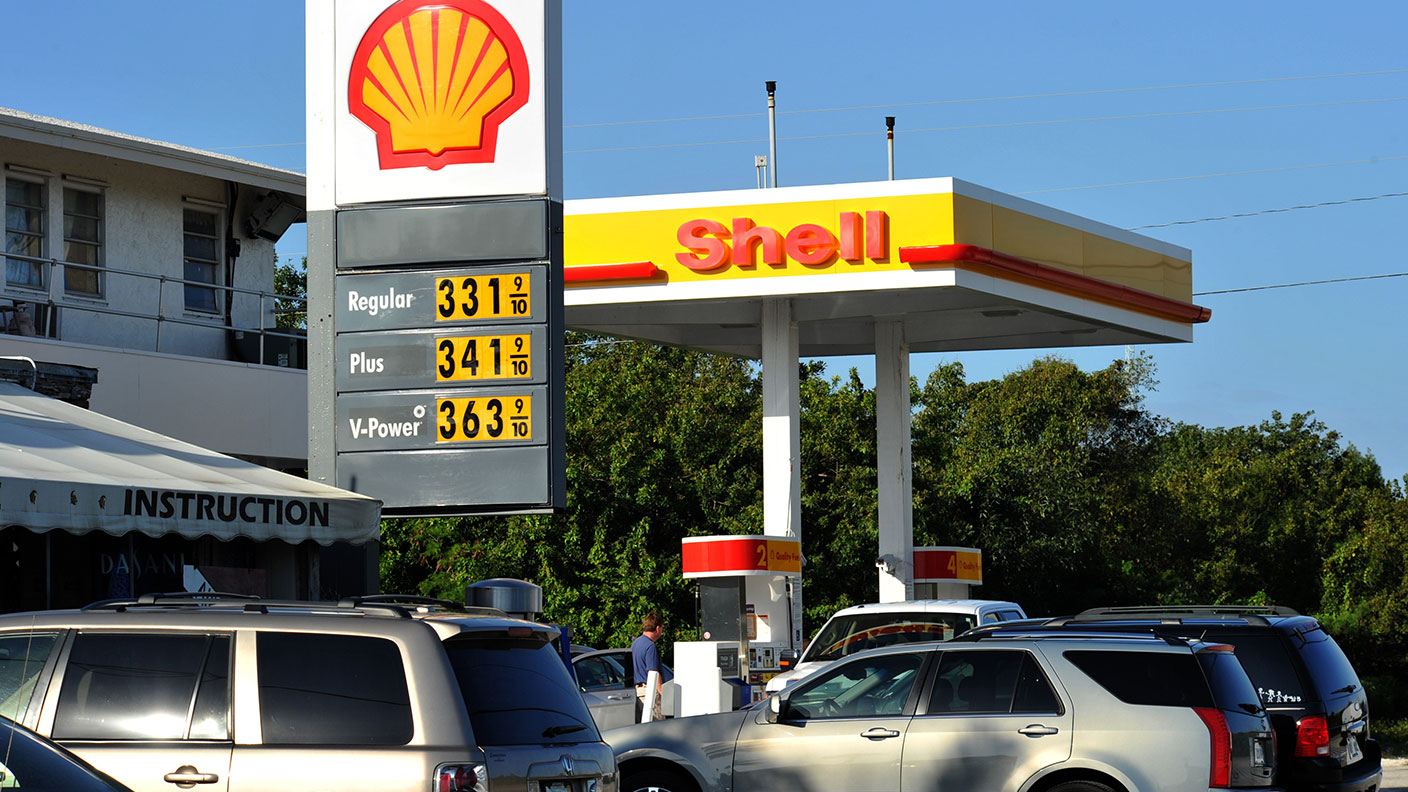How to invest as oil prices keep heading higher
Oil prices are soaring reversing a sharp meltdown seen at the depths of the Covid-19 crisis. Saloni Sardana explores how you can play the market.


Get the latest financial news, insights and expert analysis from our award-winning MoneyWeek team, to help you understand what really matters when it comes to your finances.
You are now subscribed
Your newsletter sign-up was successful
Want to add more newsletters?

Twice daily
MoneyWeek
Get the latest financial news, insights and expert analysis from our award-winning MoneyWeek team, to help you understand what really matters when it comes to your finances.

Four times a week
Look After My Bills
Sign up to our free money-saving newsletter, filled with the latest news and expert advice to help you find the best tips and deals for managing your bills. Start saving today!
Not so very long ago, it looked as though demand for oil might have peaked.
The price of Brent crude, the European benchmark, fell below $20 a barrel and the price of West Texas Intermediate, the US benchmark, briefly turned negative.
This of course was down to the pandemic. But some assumed that we might also be getting our first glimpse of a brave new future without fossil fuels.
MoneyWeek
Subscribe to MoneyWeek today and get your first six magazine issues absolutely FREE

Sign up to Money Morning
Don't miss the latest investment and personal finances news, market analysis, plus money-saving tips with our free twice-daily newsletter
Don't miss the latest investment and personal finances news, market analysis, plus money-saving tips with our free twice-daily newsletter
Instead,some think we could be looking at $100 a barrel before the year ends...
Why has demand for oil risen so much?
The price of Brent crude oil is hovering at around three-year highs, and almost touched $87 a barrel earlier this week, while US crude has risen above $85 a barrel. Both benchmarks have risen by around 20% since the start of September.
As Roger Diwan, oil analyst at consultancy IHS Markit, points out in the Financial Times: “The market is gripped by fears – fear of stronger demand, fear of a rally contagion from gas and power, fear of missing out on the rally, and the fear to rule them all: supply anxiety.”
The global energy crunch has followed the resumption of economic activity, as mass vaccinations led to an easing of Covid-19 restrictions. On top of this, a shortage of both gas (which you can read about here) and of coal, particularly in countries such as India and China, has prompted a switch to using oil for power generation in certain areas.
Coal shortages have left many states in India facing electricity blackouts, while in China, power cuts have left millions of homes without electricity. Even before the outages, China was looking to reduce coal pollution ahead of February, when it will host the Winter Olympics. As a result, many factories are switching to diesel as a substitute, driving up prices.
It’s not just a rise in demand – supply is being squeezed, too. Earlier this month, the Organisation of Petroleum Exporting Countries and its allies (known as “Opec+”) opted against further increasing supply – it had already cut production by 9.7 million barrels of oil per day in response to the drop in demand caused by Covid-19 last year, and it said it would stick to its original plan of adding just 400,000 barrels per day in November. Some had hoped it would bow to pressure from India and the US and raise supply even more.
What does oil’s price rise tell us about oil demand peaking?
So what of the longer-term hopes of the energy transition, when we all drive electric cars powered by solar and wind, and oil is a thing of the past?
There is little agreement on when the demand for oil will peak. BP says it may already have peaked in 2019 – although in another scenario it says the peak may take place in 2035. Norwegian oil and gas producer Equinor sees the peak happening between 2027 and 2028.
But what the oil price is telling us is that whatever the forecasts say, the world needs oil right now. We’d all like to live in a world where the energy is provided entirely by renewables, but getting there will take time. Wind power is all well and good until the wind stops blowing, which is exactly what happened in the UK this year – lower wind power output has contributed to the surge in natural gas prices.
It is clear that at some point the world will no longer want oil, but until then it is hard to see how oil producers won’t enjoy a prolonged period of higher returns – so they may have extra cash to hand out to shareholders. So which stocks should you consider taking a look at?
One of the easiest ways to play the market for UK investors is to invest in the iShares Oil & Gas Exploration & Production UCITS ETF (LSE: SPOG). This ETF has shot up by almost 50% from its August lows.
In the US, the Motley Fool suggests investors look at ConocoPhillips (NYSE: COP) as it benefits from “scale and access to some of the lowest-cost oil on earth”. Another option is ExxonMobil (NYSE: XOM) which operates in every segment of the oil and gas industry. While the past decade has seen some lacklustre returns, the Motley Fool says the company's recent strategy to focus on its highest return assets and its ”more recent efforts to reduce its business costs and boost efficiency are beginning to pay off”.
We also took a look at oil services companies in a recent issue of MoneyWeek magazine, where deep value investor Andrew Hunt took us on a tour of the sector and pulled out some promising-looking prospects. If you haven’t already subscribed, you can get your first six issue – plus a copy of The Sceptical Investor, John’s book – absolutely free if you join now.
Get the latest financial news, insights and expert analysis from our award-winning MoneyWeek team, to help you understand what really matters when it comes to your finances.
Saloni is a web writer for MoneyWeek focusing on personal finance and global financial markets. Her work has appeared in FTAdviser (part of the Financial Times), Business Insider and City A.M, among other publications. She holds a masters in international journalism from City, University of London.
Follow her on Twitter at @sardana_saloni
-
 Should you buy an active ETF?
Should you buy an active ETF?ETFs are often mischaracterised as passive products, but they can be a convenient way to add active management to your portfolio
-
 Power up your pension before 5 April – easy ways to save before the tax year end
Power up your pension before 5 April – easy ways to save before the tax year endWith the end of the tax year looming, pension savers currently have a window to review and maximise what’s going into their retirement funds – we look at how
-
 What's behind the big shift in Japanese government bonds?
What's behind the big shift in Japanese government bonds?Rising long-term Japanese government bond yields point to growing nervousness about the future – and not just inflation
-
 Is the market missing the opportunity in energy?
Is the market missing the opportunity in energy? -
 Halifax: House price slump continues as prices slide for the sixth consecutive month
Halifax: House price slump continues as prices slide for the sixth consecutive monthUK house prices fell again in September as buyers returned, but the slowdown was not as fast as anticipated, latest Halifax data shows. Where are house prices falling the most?
-
 Rents hit a record high - but is the opportunity for buy-to-let investors still strong?
Rents hit a record high - but is the opportunity for buy-to-let investors still strong?UK rent prices have hit a record high with the average hitting over £1,200 a month says Rightmove. Are there still opportunities in buy-to-let?
-
 Pension savers turn to gold investments
Pension savers turn to gold investmentsInvestors are racing to buy gold to protect their pensions from a stock market correction and high inflation, experts say
-
 6 stocks to buy to invest in Latin America
6 stocks to buy to invest in Latin AmericaThe region is the world’s one-stop shop, boasting the raw materials required for the energy transition and key foodstuffs to cater for growing populations, says James McKeigue. Here’s how to profit.
-
 Where to find the best returns from student accommodation
Where to find the best returns from student accommodationStudent accommodation can be a lucrative investment if you know where to look.
-
 The world’s best bargain stocks
The world’s best bargain stocksSearching for bargain stocks with Alec Cutler of the Orbis Global Balanced Fund, who tells Andrew Van Sickle which sectors are being overlooked.
